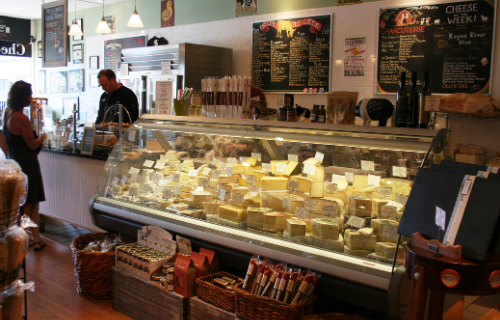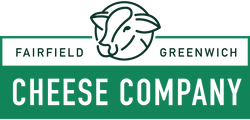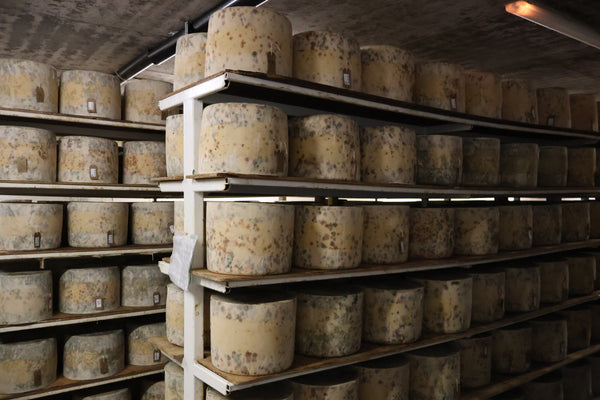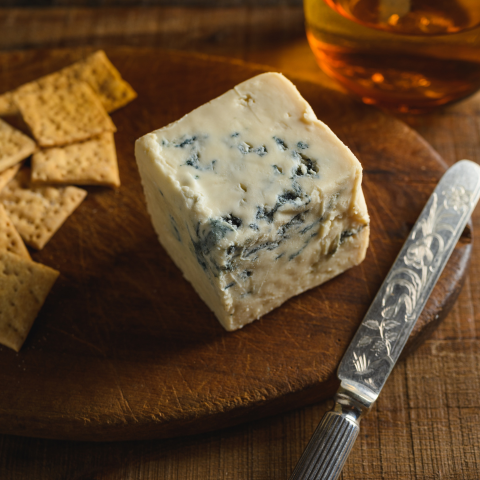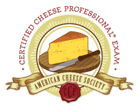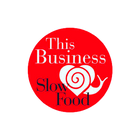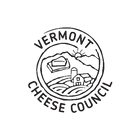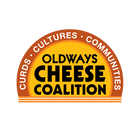Lately, we've noticed an uptick of people asking for only pasteurized cheeses leading us to think there may be a pending baby boom in Fairfield County. Believe it or not, cheesemongers are often the first to know! We know it can be a bit stressful navigating the food world during this exciting time, so this week I want to share with you everything I know about cheese and pregnancy, straight from the Certified Cheese Professionals mouth. Please note this information isn't meant to replace whatever your doctor says. I am just here to present the facts and some science about cheese and arm you with information. Everyone needs to decide for themselves what they want to do.
Cheese is healthy food and is full of protein, good fats, minerals, and vitamins. As a food, it is nearly complete; it just lacks fiber and vitamin C, so it is an excellent and satisfying choice for pregnant women. The difficulty begins when you don't have all the information to make the best choices at the cheese counter.
One of the first things to note is that of all the different food groups out there; cheese enjoys the best food safety record. Shellfish, meat, fresh fruit, and vegetables have much higher incidences of food-borne pathogens and causing illness than cheese does. The focus on cheese, particularly "raw" milk cheese, comes from a general lack of understanding of how it's made and what it all means. Cheese has a mysteriousness about it in American culture, which leads to doubt. It doesn't help when the media doesn't correctly research before they write articles. Any time there is a recall of a raw milk cheese, the focus is on the fact that it is raw. Not so with pasteurized cheese recalls. They never mention that it was pasteurized! Cheese is inherently safe because of fermentation and salt. It is a preserved food. The safety narrative is on raw vs. pasteurized, and most doctor's advice for pregnant women seems to be, "don't eat raw milk cheese," which paves the way for the assumption that pasteurized is safer. Here is the problem with that. Pasteurization is no guarantee that a cheese is safe. Have you heard about the current recall of Mexican-style cheese from an American company? It is all pasteurized. A few years ago, the large factory producer Sargento also had a massive recall for Listeria. Again, all pasteurized! The fact is that most contamination occurs post-production, so whether the milk is pasteurized or raw is irrelevant.
So what's a pregnant lady to do? Change your focus and still eat cheese. (Remember it is the safest of all the food groups anyway and good for you.) Instead of pasteurized vs. raw, focus on the texture of the cheese and avoid soft cheeses. Here is why. Potentially harmful bacteria love moisture. If they get in or on a soft cheese, they multiply rather quickly. The more concentration of harmful bacteria, the more likely you could get sick.
Conversely, semi-firm, firm, and hard cheeses have very little moisture and a surface PH that is not conducive to harmful bacterial growth. If it got on there, it barely grows. That makes it less likely to make you ill. Skip the brie and mozzarella and go for the cheddar, Manchego, and Gruyere. Parmigiano Reggiano is also up for grabs! Most of the cheese case is yours for the taking.
One more thing. Buy your cheese from a reputable source. We vet all our producers and ensure they are fully licensed and have food safety plans in place. Every cheese and piece of charcuterie that comes through our doors is recorded. We save the batch numbers and lot codes so we can recall a cheese if a problem arises. We are trained in the safe handling of cheese and charcuterie. The proliferation of these "charcuterie board" and grazing board companies is problematic. Firstly, they do not fall under the State of Connecticut Cottage Food Laws and are not legal if made in a home kitchen. Secondly, the cheese and salami on those boards most likely come from a supermarket, which is fine, but I highly doubt the business making the board is recording the batch off the labels. Do they know what is on the board you just bought? Can they trace it?
